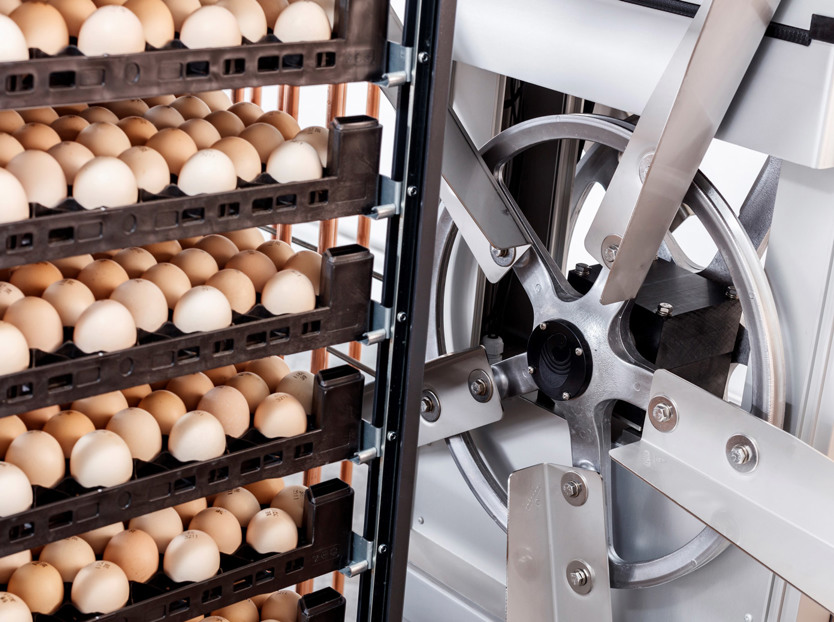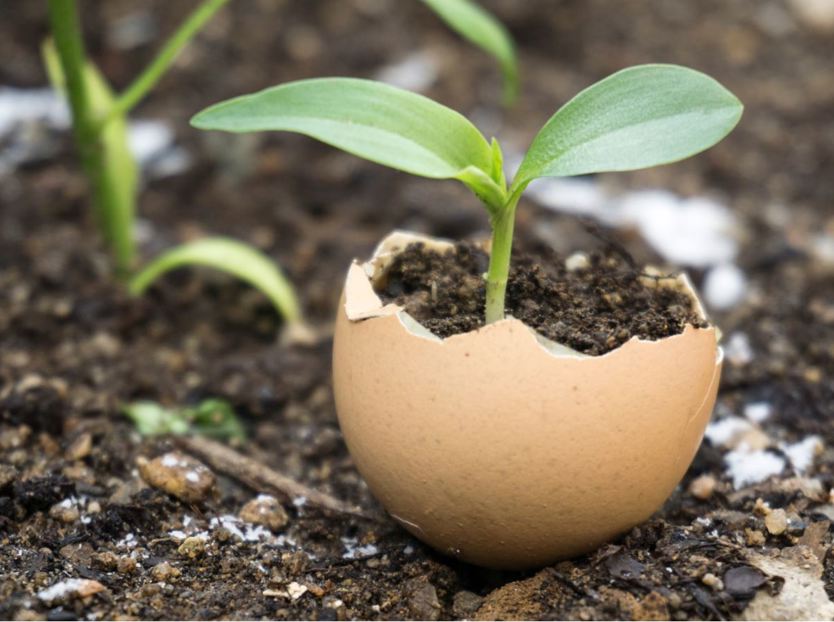The genetic selection of broilers for fast growth has led to a large, lean and efficient chicken production, but has also introduced animal welfare concerns. Although slower-growing breeds have been found to show better welfare traits compared to fast-growing breeds, broiler welfare should not be considered in isolation, but in the context of feeding the world with the limited resources we have. Long-term sustainable broiler welfare can only be reached if the challenges across all of the following areas are properly managed: animal welfare, economic development and environmental protection. Petersime has joined a partnership between the Dutch Ministry of Agriculture, Nature and Food Quality and Wageningen Livestock Research that investigates the production of sustainable, healthy slower-growing broilers.
Genetic broiler selection and welfare consequences
Broiler breeding companies employ balanced breeding in their genetic selection programmes. Balanced breeding means breeding for a combination of traits that aims to satisfy the increasing worldwide demand and meet specific needs in relation to the health and welfare of animals, the environmental impact of livestock production and the availability of natural resources.
As such, breeding companies have managed to decrease the prevalence of certain health issues (e.g. tibial dyschondroplasia, long bone deformities, ascites) by incorporating health and welfare traits in their programmes. Nevertheless, fast-growing broilers are also reported to perform less natural and motivated behaviours, experience walking problems and have poorer footpad and hock health. Consequently, public concern about the way in which broilers are raised is growing.
Development of slower-growing breeds
While broiler welfare awareness is new in certain regions of the world, it is not new in Europe and has been particularly strong in the Netherlands, where animal welfare organizations are a driving force for improvements in animal well-being. Food businesses respond to that by adopting firm commitments to broiler welfare. It is in response to this changing market that breeding companies have developed alternative breeds, the so-called slower-growing broilers. These breeds have a number of proven health and welfare benefits over fast-growing breeds as they show lower mortality rates, less antibiotics use, better mobility and fewer footpad lesions. Since the end of 2017, 35-40% of Dutch broiler farms have switched to slower-growing breeds. About 90% of all fresh chicken meat in Dutch supermarkets comes from slower-growing broilers. Other countries are showing developments into the same direction: In the United Kingdom and France, as another example, slower-growing broilers currently represent 10% respectively 15% of the total broiler production.
To improve and promote animal welfare, several welfare accreditation schemes have arisen in a number of countries around the world (‘Beter Leven’ in the Netherlands, ‘Label Rouge’ in France, ‘RSPCA Accreditation’ in the UK, ‘Tierschutzleben’ in Germany,…). Each of these accreditation schemes has its own set of regulations and standards with the aim to review breeding goals and change broiler management in light of improved welfare outcomes such as approved breeds, maximum growth rate, minimum slaughter age, maximum stocking density, provision of natural daylight and access to an outdoor area.
Based on a broad research-based knowledge of Embryo-Response Incubation™ technology, Petersime also invests in broiler welfare by developing incubation conditions that automatically adapt to the actual needs of slow-growth embryos.

Sustainability and broiler welfare
It is clear that animal well-being and health have been the focus for the development of slower-growing breeds. Although broiler welfare is essential, it should not be considered in isolation, but in the context of feeding the world with the limited resources we have. Broiler production may only be deemed sustainable if the challenges across all of the following areas are properly managed: animal welfare, economic development and environmental protection. The increasing worldwide demand for chicken meat as a primary source of animal protein needs to be balanced with the impact of livestock production on animal welfare and the environment.
The livestock sector is increasingly competing for scarce resources - such as land, water and energy - and has an impact on air, water and soil quality due to emissions. Despite its positive welfare outcome, the production of slower-growing broilers has been found to have a 20% higher carbon footprint compared to conventional production. Questions are also rising about the effect on food prices and food security. Further research is needed if the poultry sector wants to progress towards long-term sustainable and welfare-friendly broiler production.
The importance of additional research
Slower-growing broilers differ in their genetic background, physiology and behaviour compared to conventional broilers. At the same time, there is a lack of knowledge about their specific needs as almost all worldwide knowledge is based on research about fast-growing broilers. This means that, currently, the husbandry management used for rearing slower-growing breeds is based on trial and error and on what the industry has learned from the management of conventional broilers.
Increasing the knowledge about slower-growing breeds and implementing it in the field will further improve animal welfare and sustainability. For that reason, Petersime has joined the ‘PPP SloGro Project’, a public-private partnership between the Dutch Ministry of Agriculture, Nature and Food Quality and Wageningen Livestock Research that investigates the production of sustainable, healthy slower-growing broilers. As sharing know-how within the poultry industry is paramount to Petersime’s mission, further findings and results will be shared in later articles.




